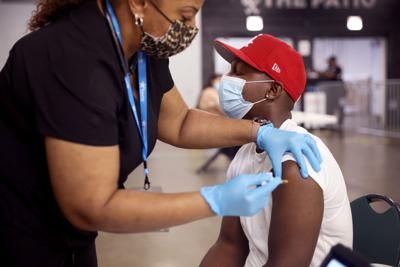Delta variant will likely become dominant Covid-19 strain in US, CDC chief says

By Madeline Holcombe and Jay Croft, CNN
The Delta variant of Covid-19 is expected to become the dominant strain in this country, and it’s further reason why people need to ramp up the vaccination pace, US Centers for Disease Control and Prevention Director Dr. Rochelle Walensky said Friday.
The Delta variant, also known as B.1.617.2, is more transmissible than others, she said on “Good Morning America.” And it is already dominant in the UK.
It’s possible a vaccine-resistant variant could emerge. But she said that is not the case with the Delta variant.
“As worrisome as this Delta strain is with regard to its hyper transmissibility, our vaccines work,” Walensky said. “Right now, they are working and they require actually two doses to be fully vaccinated, to work well. So I would encourage all Americans, get your first shot and when you’re due for your second, get your second shot and you’ll be protected against this Delta variant.”
Another vaccine expert says that time is running out to get ahead of the potential strain of variants — as odds stack against the US reaching the target of 70% of adults at least partially vaccinated by July 4.
“Vaccines are our only way out of this,” Dr. Paul Offit told CNN’s Wolf Blitzer. “Unless we vaccinate a significant percentage of the population before winter hits, you’re going to see more spread and the creation of more variants, which will only make this task more difficult.”
Cases and infections have decreased, Offit said. But with hundreds of people dying and at least 10,000 people infected most days, the rates are still too high to prevent the summer lull from turning into a winter surge, he said.
Experts have cautioned that the continued spread of the virus could lead to more numerous — and potentially more transmissible and dangerous — variants.
The US has already seen surges of the highly transmissible Alpha and Delta variants, while the spread of the Gamma variant is growing in several states.
In order to attain herd immunity, or the point at which the virus cannot easily spread within the community, experts have offered estimates of it requiring the innoculation through infection or vaccination of between 70 to 85% of the population. According to the CDC, only 53% of the population has received at least one dose of the vaccine.
And only 65% of adults have received at least one dose.
“You would have thought at the beginning of this, knowing that vaccines are our only way our of the pandemic, the hardest part would have been figuring out how to construct these vaccines,” said Offit, a key member of the FDA Vaccines Advisory Committee. “The hardest part is convincing people to get it, which is remarkable.”
Variants should encourage people to get vaccinated, experts say
Spreading variants shouldn’t be a concern to those who are vaccinated, Dr. Anthony Fauci told NPR, but it should be an incentive to get vaccinated.
The CDC elevated the Delta variant to a variant of concern this week. Fauci said that “the combination of more transmissibility and greater severity of disease, appropriately, prompted the CDC to elevate it to a variant of concern.”
When asked how concerned he was about the variant, Fauci said: “I’m not concerned about the people who are vaccinated. Because the good news about all this, among the seriousness of the situation with regards to the variant, is that the vaccines work really quite well.”
People who are vaccinated are protected, “which is another very good reason to encourage people strongly to get vaccinated because if you are not vaccinated, you are at risk of getting infected with a virus that now spreads more rapidly and gives more serious disease,” said the director of the National Institute of Allergy and Infectious Diseases.
Experts and officials are pressing for people who are still hesitant to get the vaccines and help slow the spread.
“What do we do if a critical percentage of this population chooses not to get vaccinated and chooses to allow this virus to continue to spread, continue to hurt themselves and others and continue to create variants which become all the more contagious and all the more difficult to contain,” Offit said.
Vaccine protection could last a year — or much longer
Protection offered by vaccines appears to be very strong, Offit said.
“Although immunity might fade for protection against mild disease or asymptomatic infection or low moderate disease, I think protection against critical disease will probably be relatively long-lasting, meaning for a few years,” he said. “The so-called cellular immune response induced by these vaccines appears to be excellent.”
But experts can only rely on six months of data, since the vaccines are so new. And scientists still can’t say for sure how long the protection will last.
Their durability will determine whether the population will need boosters, Fauci said.
CNN’s Virginia Langmaid, Naomi Thomas and Jen Christensen contributed to this report.

